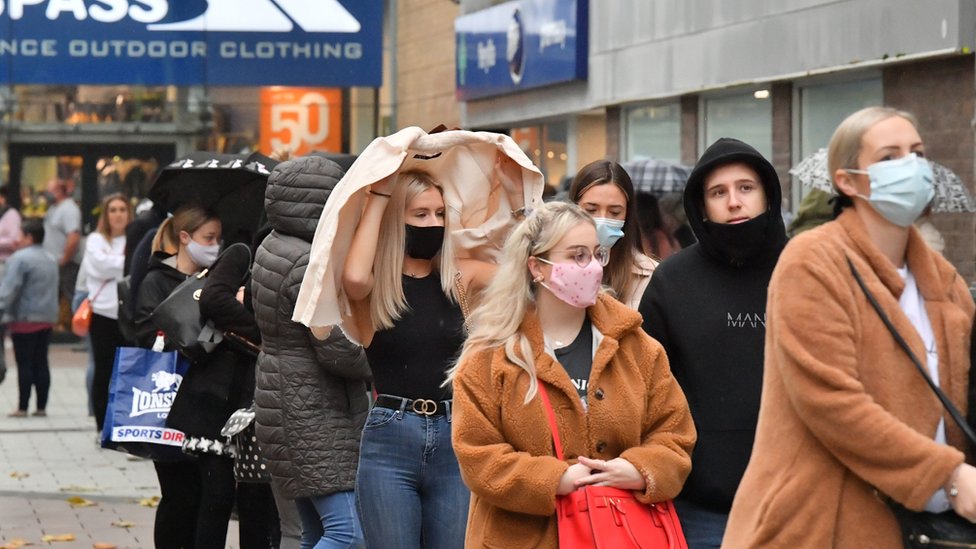UK economy bounces back from recession

The return to growth comes after a six-month slump induced by the first coronavirus lockdown.
However, the expansion was not enough to reverse the damage caused by the pandemic.
The country's economy is still 8.2% smaller than before the virus struck,
said the Office for National Statistics (ONS).Analysts warned that it was likely to shrink again in the final three months of the year because of the impact of renewed lockdowns in different parts of the country.
A second lockdown began in England on 5 November and is due to finish on 2 December.


Today's record growth for the UK economy in the three months from July to September is obviously a welcome partial reverse from the record fall seen in the spring. It means that lights are going back on in the economy that were switched off in the first lockdown.
The improvement of 15.5% occurred in all sections of the economy - services, manufacturing and construction. It is, though, catch-up not recovery. It is rebound more than it is established bounce-back. The economy is still nearly a tenth smaller than it was before the pandemic struck.
More than that, obviously the data is a rear-view mirror on the economy. It reflects a period of falling infections, the boost to growth and to footfall from the chancellor's Eat Out to Help Out scheme. It shows the rate of this rebound slowing in September, even as there was a boost from the return of school pupils.
Since then, there has obviously been a further, though less extensive shutdown, but both the Bank of England and the Treasury have boosted the economy. As important to the economy as the government physically shutting down swathes of society is the fact that consumers voluntarily retrench from social activity too, when the virus is spreading intensively.
The great bit of sunlight on the horizon, however, is the vaccine. That will be the biggest economic stimulus imaginable.

In September, growth was 1.1%, marking the fifth consecutive month of expansion. However, that was weaker than the levels seen in previous months.
"While all main sectors of the economy continued to recover, the rate of growth slowed again, with the economy still remaining well below its pre-pandemic peak," said Jonathan Athow, deputy national statistician for economic statistics at the ONS.
"The return of children to school boosted activity in the education sector. Housebuilding also continued to recover, while business strengthened for lawyers and accountants after a poor August.
"However, pubs and restaurants saw less business after the Eat Out to Help Out scheme ended and accommodation saw less business after a successful summer."
Vaccine hopes
Samuel Tombs, chief UK economist at Pantheon Macroeconomics, said the economy was likely to shrink by about 0.5% in the final three months of the year.
"On a monthly basis, it probably won't recover to September's level until the spring, when it should be possible for Covid-19 restrictions to be sustainably relaxed," he added.
Thomas Pugh, UK economist at Capital Economics, said that in view of what had happened since, the figures felt "not just like old news, but like ancient news".
"We already know that GDP will struggle to rise in October as tighter restrictions were imposed and that it will take a hammering in November as the effects of the second Covid-19 lockdown are felt.
"But the recent news of a potentially effective vaccine means that the outlook beyond the next six months could be much rosier than we have previously anticipated."

November 12, 2020 at 08:45PM
https://www.bbc.co.uk/news/business-54914410
Labels: BBC News

0 Comments:
Post a Comment
Subscribe to Post Comments [Atom]
<< Home